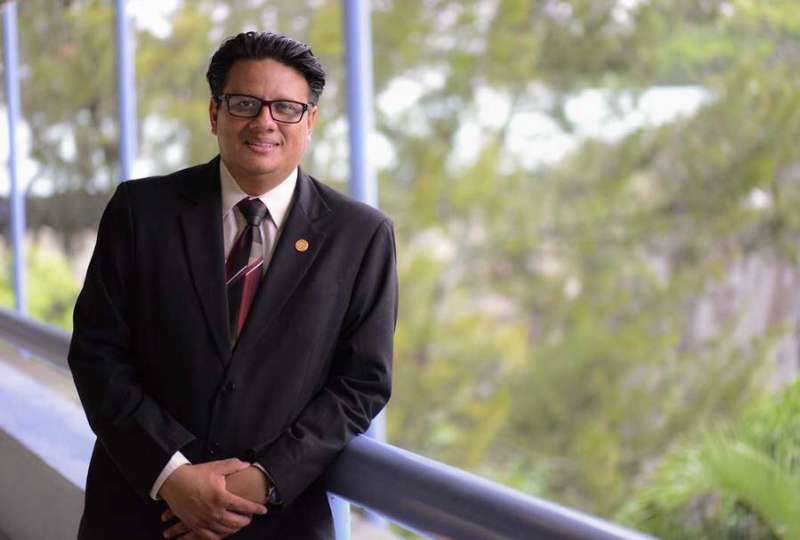Researcher designs robot-assisted care system for speech and language therapy

Improving the treatment of dyslalia, a disorder that causes the incorrect pronunciation of phonemes, is the purpose of the robot-assisted care system designed by Eldon Glen Caldwell, Ph.D. in Computer Engineering from the University of Alicante. It consists of a platform combining a robot with a mobile device application that increases therapeutic effectiveness in physiological, organic and functional dyslalia, and facilitates professionals' remote and face-to-face work, thus reducing costs for users and patients.
This technology, already validated and tested with real patients and therapists, is targeted at people with non-severe articulation disorders and dyslalia, requiring low supervision or low- or medium-complexity therapies. "Users with autism, Down syndrome or dyslalia due to strokes that can be classed as such," Eldon Glen Caldwell explains.
The potential of this robotic platform has been demonstrated both during the experimental validation and in the accounts provided by users and supervisors. "Experimentally, it has been proved that using the platform and the mobile device application improves therapeutic effectiveness by up to 11.3% in 10 weeks, with a statistical reliability of 95%. From the fifth week of use onwards, statistically significant changes are observed in the groups using the technology without time restrictions," the UA Ph.D. holder notes.
According to the users themselves, the platform is user-friendly, easy to use and flexible for patients, accessible from anywhere rather than only in face-to-face sessions with the therapist. In this sense, the researcher points out, "costs associated with face-to-face sessions could be reduced by at least 50%."
In recent years, there has been an increase in research into robotics and IT applications for mobile devices with therapeutic purposes. The robotic system designed by Eldon Glen Caldwell combines the use of a physical robot with a virtual emulator, which at present is the only one available in the field of speech and language therapy and, specifically, in functional, physiological and organic dyslalia. Among other benefits, this system offers multiple technologies, such as integrated voice recognition, a robot archetype for facilitating the "human-robot" relationship and comprehensive programming and control of the physical movements of the robot.
This system is part of the thesis undertaken by Eldon Glen Caldwell (pictured), directed by the lecturers Miguel Ángel Cazorla (University of Alicante) and José María Cañas (Rey Juan Carlos University). The viva session was recently held online in compliance with the restrictions imposed due to the COVID-19 crisis. The thesis, which received a distinction, addresses the treatment of speech and language disorders, as the worldwide prevalence of conditions requiring therapy and related to physiological, functional and organic dyslalia in childhood remains at between 8% and 9% (WHO, 2011).
According to data from the World Health Organization, in 2015, 37% of those who recovered from an incident related to cardiovascular diseases suffered from some type of dyslalia or articulation disorder associated with language or speech skills(PAHO, 2014).
"It is important to keep working on this kind of systems with a view to overcoming time restrictions on the execution of therapeutic speech strategies, reducing costs (particularly to the benefit of socially vulnerable populations), increasing the productivity of professionals through the use of virtual environments, and promoting playful interaction between patients and robots," Eldon Glen Caldwell says.
The UA researcher undertook part of his work in his country of origin, Costa Rica. "In addition to the excellent teamwork with my thesis directors Miguel Ángel Cazorla and José María Cañas, I am grateful for the multidisciplinary collaboration with Carlos Morales, Emilia Solís, Silvia Soto and Adriana Jones in the functional and experimental validation of the platform at the University of Costa Rica and the Special Education Centre of Heredia," he says.





















